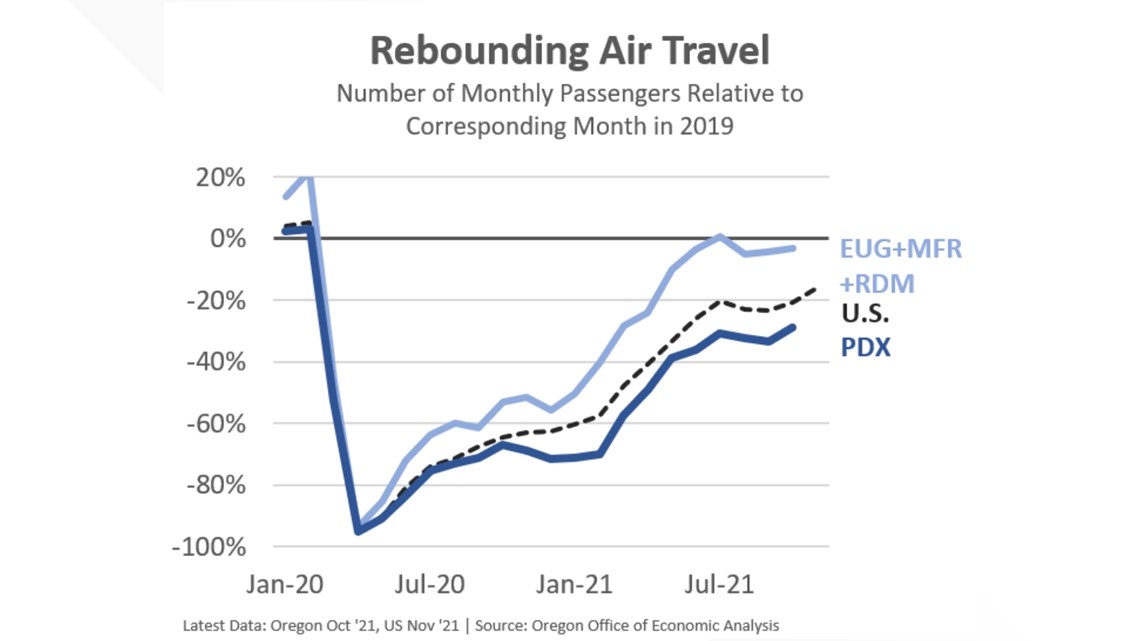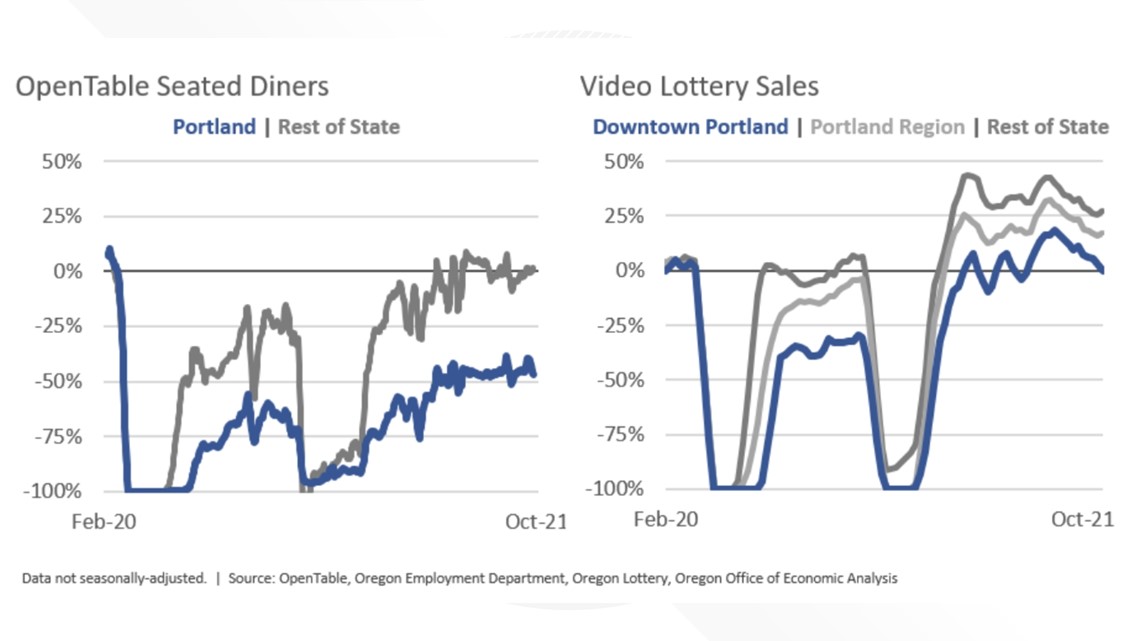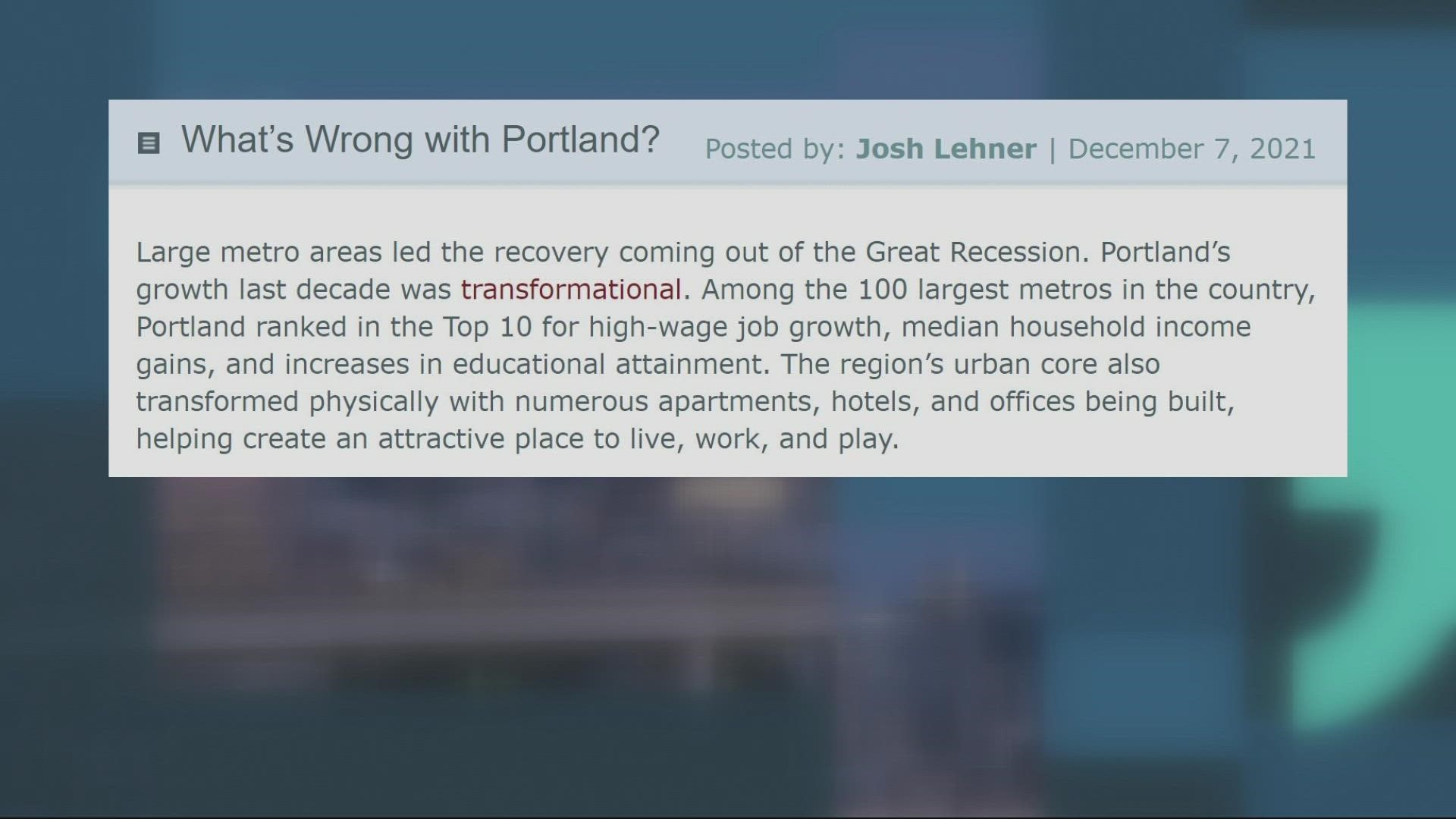PORTLAND, Ore. — Portland's economic recovery is lagging behind the rest of the state, according to a recent report from Josh Lehner with the Oregon Office of Economic Analysis.
In a December blog post titled, "What's Wrong with Portland?," Lehner notes consumers are spending more in suburban and rural areas than the state's urban core.
He attributes the slower recovery to the ongoing lack of in-person activities that cities like Portland count on to draw people in. Specifically, Lehner says remote work has allowed would-be commuters to remain at home, shopping and dining closer to where they live.
"We're spending less money at the bars and the restaurants in the urban cores. We're spending less money at the shops because we're doing less window shopping and picking up that last minute anniversary gift, like some of us tended to do on the way home from work," said Lehner.
The state economist also cited the lack of business travel as another reason for the slower recovery. Air travel at airports in Eugene, Medford and Redmond is near pre-pandemic levels but remains much lower at PDX.


Other indicators of in-person activity support the claim that Portland is behind the rest of the state. Data from OpenTable shows reservations at Portland restaurants remain 50% below pre-pandemic levels, while they've fully recovered elsewhere in Oregon.
Lehner also pointed to video lottery sales which are fully recovered in downtown Portland but are even stronger in the suburbs and other parts of the state.


It's not all bad news for the state's largest city. While Portland may be lagging behind other regions in Oregon, it remains average when compared to other large urban areas across the country.
"As of October, employment in the Portland metro is down 4.2% from pre-pandemic levels, effectively identical to the 4.3% decline seen in the median large metro," wrote Lehner.
Has Portland's recent negative reputation hurt recovery efforts? It might be too soon to know.
"The question is whether that more pessimistic, conventional wisdom actually impacts future economic growth. That's really the thing that we're trying to figure out. And I think right now the baseline expectation is not really but of course we'll continue to track employment and income and population growth in the years ahead to figure out to what degree that happens or does not happen," said Lehner.

